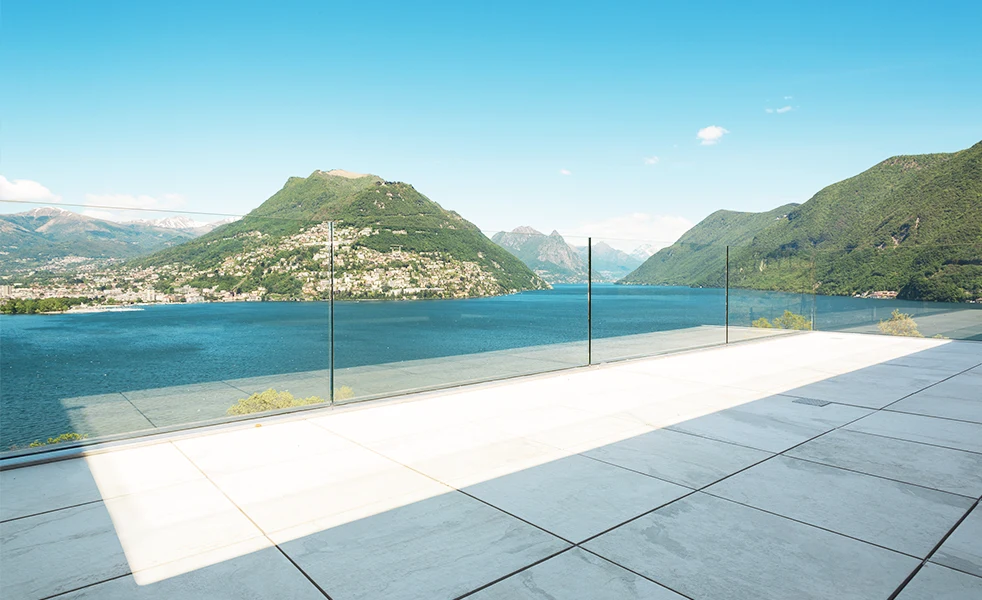EPDM and PVC Waterproofing

PVC Waterproofing Membrane
PVC is a plastic material commonly used in waterproofing due to its flexibility and initial resistance. However, over time, PVC tends to harden and crack, causing volume loss and the appearance of fissures, a condition that requires constant repairs. Additionally, to ensure proper installation of the PVC waterproofing membrane, a compression layer is needed, which increases the cost and lengthens the process.
EPDM Waterproofing Membrane
Comparatives
Waterproofing with EPDM and PVC
- Cracks and fissures issues
- Additional layers
- Specialized installation
- Degradation in extreme climates
Revestech solution
- Superior durability
- No need for a compression layer
- Simple and quick installation
- Resistance at critical points
- Adaptability to any climate
Common drawbacks of PVC and EPDM

Cracks and fissures issues
Both PVC and EPDM are susceptible to cracks or tears over time, which compromises their waterproofing capacity.

Additional layers
For both materials to be effective in placing ceramics or in high-traffic areas, an additional compression layer is required.

Specialized installation
A high level of expertise is required for proper installation, including overlaps, welds, and mechanical fixings at joints and corners, which increases the cost and the risk of errors during the project.

Degradation in extreme climates
These systems tend to lose effectiveness over the years, especially in areas exposed to severe weather changes, such as extreme temperatures or prolonged sun exposure.
Advantages of Revestech Waterproofing Membranes over PVC and EPDM

Superior durability
Revestech membranes do not suffer from degradation or cracking over time. They offer a lifespan of over 50 years, far surpassing the longevity of PVC and EPDM.

No need for a compression layer
Unlike PVC and EPDM, Revestech membranes do not require additional compression layers for the installation of ceramics, significantly reducing both the cost and installation time.

Simple and quick installation
Revestech membranes are much easier to install, without the need for specialized tools or complicated fixings. Additionally, they can be applied directly over the existing pavement, which speeds up the rehabilitation process and eliminates the need for stripping.

Resistance to adverse conditions
While PVC and EPDM require special attention at joints and overlaps, Revestech membranes provide continuous, seamless waterproofing in critical areas such as corners, vertical surfaces, and joints.

Adaptability to any climate
Revestech membranes are resistant to extreme climates, maintaining their effectiveness in high and low temperatures or with intense sun exposure, unlike PVC, which hardens over time.
Conclusion
Although PVC waterproofing membranes and EPDM membranes are common options for surface waterproofing, their limitations in terms of durability, the need for additional layers, and the risk of cracks make them less appealing in the long term. Revestech waterproofing membranes offer a much more durable, easy-to-install, and weather-resistant solution.
Choose the safety and durability of Revestech membranes and ensure effective waterproofing, without complications and without cracks.
Frequently Asked Questions
What is waterproofing with PVC membrane and how does it work?
The PVC waterproofing membrane is used to create a barrier against water on roofs and terraces. While it is initially flexible, over time, PVC hardens and may crack, compromising its effectiveness. Revestech membranes are much more durable and do not suffer from this type of deterioration, providing long-term protection.
What is EPDM and how is it used for waterproofing?
What are the main applications of EPDM in waterproofing projects?
How is an EPDM membrane installed and what surface preparation is required?
How long does EPDM waterproofing last?
What are the main applications of PVC membranes for waterproofing?
How long does a PVC membrane waterproofing system last?
Is the PVC membrane resistant to the weather and extreme temperatures?
Is the PVC membrane resistant to chemicals and chlorine in pools?
If you want more information, contact us.



